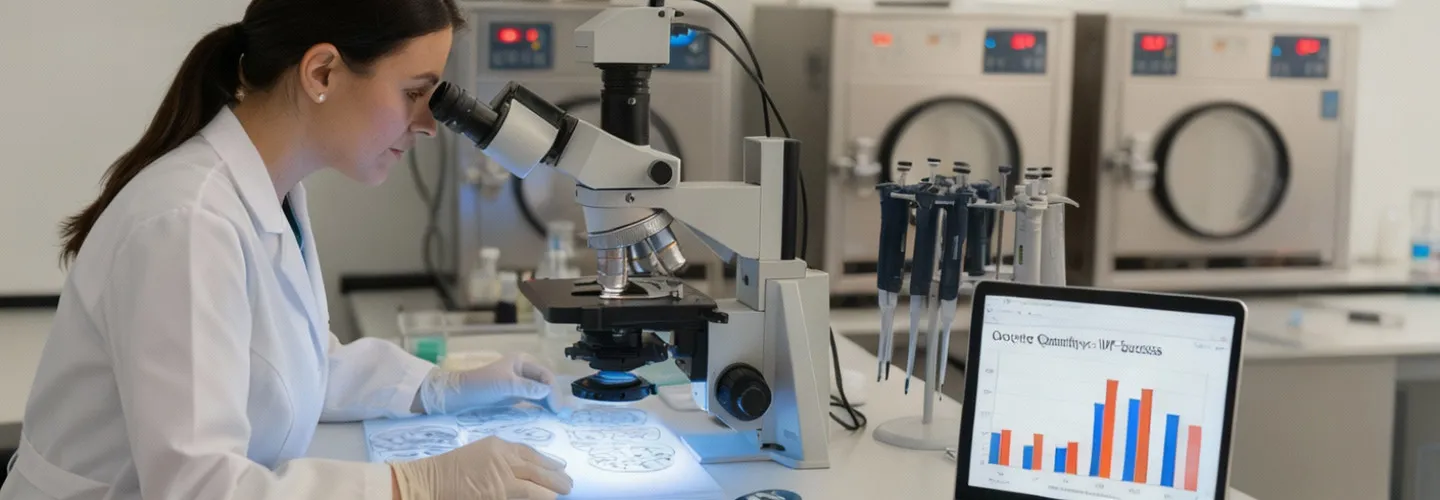How Many Eggs Do You Need for IVF Success? The Ideal Oocyte Number Explained by Dr. Senai Aksoy, IVF Specialist in Istanbul

For IVF, getting between 10 to 15 eggs per cycle is usually seen as the sweet spot. It gives you a good chance of having a baby without too many health issues. But it’s more about how good the eggs are, not just how many there are. Age really matters since it impacts the health of the chromosomes in the eggs. One good egg is better than a bunch of bad ones. If you don’t have many eggs, things like banking embryos or doing DuoStim can help. Also, making some healthy changes to your lifestyle over about three months can make your eggs better.
IVF: The Ideal Number of Oocytes for Success? Let’s Find Out Together
Introduction
Hi, I’m Dr. Senai Aksoy, an IVF doctor here in Istanbul.
I get the same question from patients all over the world every week:
“Doctor, how many eggs do I need for IVF to actually work?”
It’s a totally fair question. IVF is full of numbers, stats, and what you hope will happen. The number of eggs you get can feel like the first test score, and it can either make you feel good or worry a lot.
Let’s break down what that number really means, using good science and a caring approach. I’ll go over why the amount matters, but why the quality of those eggs is even more important. I’ll also share what studies say about the best number and what you can do to make things better for yourself.
So, relax, make yourself a drink, and let’s get started.
Why Do We Need So Many Eggs? The Journey of an Oocyte
IVF isn’t a smooth ride; think of it as a funnel.
In each step, only the best embryos survive.
- Mature Eggs: Around 60–80% of eggs we get are good enough to be fertilized.
- Fertilization: About 70–80% of those mature eggs get fertilized just fine.
- Blastocyst Growth: About 50–60% of embryos become blastocysts (Day 5), which is when they’re best for transfer or freezing.
It’s good to understand that some embryos won’t make it. It’s not failing—it’s just nature doing its thing. The more eggs we start with, the better the odds are that we’ll end up with healthy embryos.
Each step forward is a win.
Quality Before Quantity: The True Secret to IVF Success
It’s not just about the numbers game. I always tell people I treat:
“One good egg is better than twenty bad ones.”
A good egg has the right genes and lots of energy. We can look at them under a microscope, but we can’t really see if the genes are good just by looking.
The Role of Age (and Other Factors)
The biggest factor influencing egg quality is age. 👉 Study Reference (PubMed)
- Under 35: Around 25–30% of eggs may have chromosomal abnormalities.
- Over 42: Up to 80% may be affected.
This explains why pregnancy rates decline and miscarriage risks rise with age — even if we retrieve many eggs.
Other factors also matter: smoking, obesity, toxins, stress, and environmental exposure can all impact egg health.
So, What’s the Ideal Number? What Science Says
Large studies have identified an optimal range of eggs retrieved per cycle.
- 10 to 15 oocytes = the “sweet spot.”
- Beyond 20 = slightly reduced live-birth rates due to hormonal imbalance and higher OHSS risk.
This is not a hard rule but a statistical target — an indicator, not a guarantee.
The IVF Funnel in Numbers
| Step | Average Success Rate | Example with 12 Oocytes |
|---|---|---|
| Mature Eggs (MII) | ~80% | ~10 mature eggs |
| Fertilized Eggs (2PN) | ~75% | ~7–8 embryos |
| Blastocysts (Day 5) | ~50% | ~3–4 blastocysts |
Each step reduces the number — but increases the potential quality.
What If You Have Fewer Eggs?
Low ovarian reserve or poor response does not mean it’s over. Modern medicine offers powerful strategies to maximize results.
🔹 Strategy 1: Oocyte or Embryo Banking
Multiple mild stimulations and freezing eggs or embryos each time until a target number is reached — like saving in a fertility “bank.”
🔹 Strategy 2: DuoStim (Double Stimulation in One Cycle)
An innovative approach that performs two stimulations within the same menstrual cycle to double the number of retrieved eggs. 👉 Learn more about IVF protocols
What If You Have Many Eggs?
For high responders (>15–20 eggs), the safest and most effective strategy is “freeze-all” — freezing embryos and doing the transfer in a later, hormonally balanced cycle. 👉 Learn more about Frozen Embryo Transfer (FET)
The 90-Day Window: How to Improve Egg Quality
An egg takes about 90 days to mature. That means the lifestyle choices you make today influence your next cycle.
Nutrition and Lifestyle Tips
- Load up on colorful fruits and veggies, whole grains, and fish with Omega-3s.
- Get your healthy fats from olive oil, nuts, and avocados.
- Go easy on the caffeine, sugar, and processed stuff.
- Chill out and lower your stress levels – get some sleep, try mindfulness, or do some light exercise.
Supplements That May Help (With Medical Guidance)
- CoQ10 (Ubiquinol): May enhance mitochondrial function and egg quality (PubMed)
- DHEA: Can improve ovarian response in some women (PubMed)
- Folic Acid & Vitamin D: Essential for all patients planning pregnancy.
Frequently Asked Questions
Is 5 eggs enough for IVF? Yes — one perfect oocyte can still lead to success.
Does stimulation cause early menopause? No. IVF stimulation “rescues” eggs that would otherwise be lost. It doesn’t reduce your long-term reserve.
Do all follicles contain eggs? Not always — some follicles are empty or contain immature eggs. That’s perfectly normal.
Does having many eggs guarantee success? No. It increases your statistical chance, but genetic quality matters most — and is mainly age-related.
Final Thoughts: IVF Is a Journey, Not a Race
- Quality is more important than quantity.
- Aiming for 10–15 eggs is a good guideline, but it’s not a strict requirement.
- Age is still the most important thing to consider.
- A plan that’s made just for you is the best way to go.
We know you’re not just a statistic. You’re an individual with your own experiences. We want to create the best, most caring, and most custom-made plan for you.
Continue Reading
⚠️ Medical Disclaimer
The information in this article is provided for educational purposes only and does not replace medical advice, diagnosis, or treatment. Always consult a qualified healthcare provider about any medical concerns or before starting a new treatment plan.
The content has been created by Dr. Senai Aksoy and medically approved.

